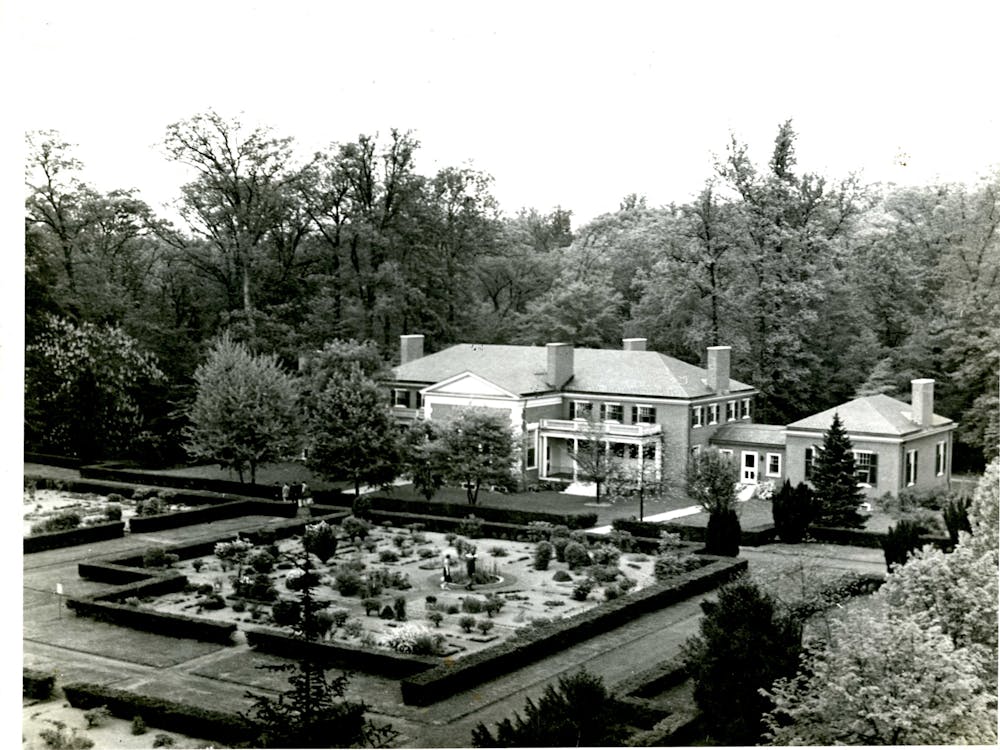In conjunction with LGBTQ Life and the Digital Scholarship Seminar Series, Gabrielle M.W. Bychowski, a Anisfield-Wolf SAGES Fellow and lecturer at Case Western Reserve University, gave a talk titled “The Signal Never Dies” at Brody Learning Commons on Wednesday.
In her talk, Bychowski explained how the lack of physical “trans spaces” has made the digital world a valuable tool for the transgender community. For example, LGBTQ activists used the internet to grieve for the death of Leelah Alcorn, a transgender girl who committed suicide in 2014 at the age of 17.
She also discussed the way transgender people unconsciously anticipate technologies to help them fulfill bodily changes.
She shared her own account of what it was like to discover she was transgender and having to repress that identity to please others.
“I knew that when my body began anticipating menstruation, I had to translate this into silence,” Bychowski said. “I knew when my body began to signal the development of breasts, that I would have to wait years for the medical technology to finish the process my body could not alone.”
As a result, Bychowski suffered a sense of dysphoria. She described having to repress her identity as a state of semi-consciousness.
“One feels like a zombie, present in body but not in mind,” she said.
Bychowski does not believe it is important to determine what causes people to identify as transgender.
She pointed out that writers from ancient Rome to the early Christian period have observed trans-consciousness.
“What we know from medicine and history is that transgenderism exists in some form across the world,” she said. “Trans-consciousness has existed for a long, long time and seems to be a signal that will never die out in our species.”
Bychowski believes that trans-consciousness and dysphoria does not solely originate in the individual’s brain.
She pointed to the lack of acceptance many have of the transgender community.
“At worst, the trans person in such a community is a problem that needs to be fixed,” she said. “At best, the trans person is a private issue that should be dealt behind closed doors.”
According to Bychowski, trans-consciousness occurs not only in the brain but also in the body and the environment.
“Even medical institutions have concluded that the sufferings trans persons experience is not isolated or originating in their body, but that dysphoria originates in the environment,” she said.
Sam Beckham, a faculty member at the Bloomberg School of Public Health, talked about the motivation for coming to the talk as well as what was gained from it.
“There are very few trans-focused talks and opportunities, and I really wanted to jump in and take part in it,” Beckham said. “It opened my mind a little bit too because I haven’t really explored trans-digital communities at all... So to see the trans community was really powerful.”
Tamsyn Mahoney-Steel, the Digital Scholarship Specialist at Hopkins explained the goal of the Digital Scholarship Seminar Series.
“I don’t think this is something that should be tacked on as an afterthought,” Mahoney-Steel said. “I decided to make the series all about digital diversity and to invite scholars who could talk about all aspects of what diversity means in the digital realm, whether that’s digital spaces for transgender people or how the very nature of encoding something can affect how it is perceived and used.”






















Please note All comments are eligible for publication in The News-Letter.